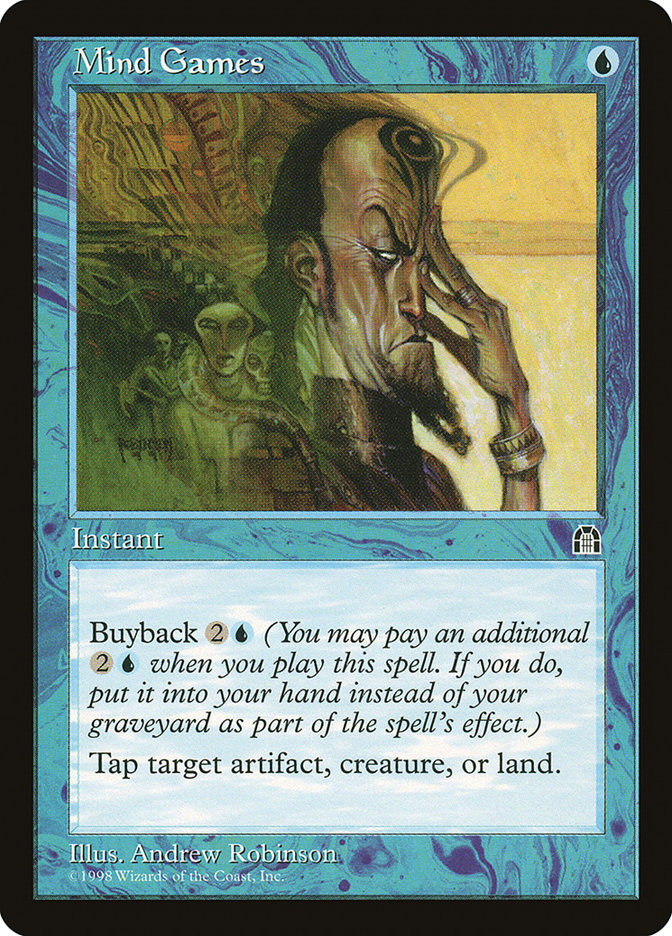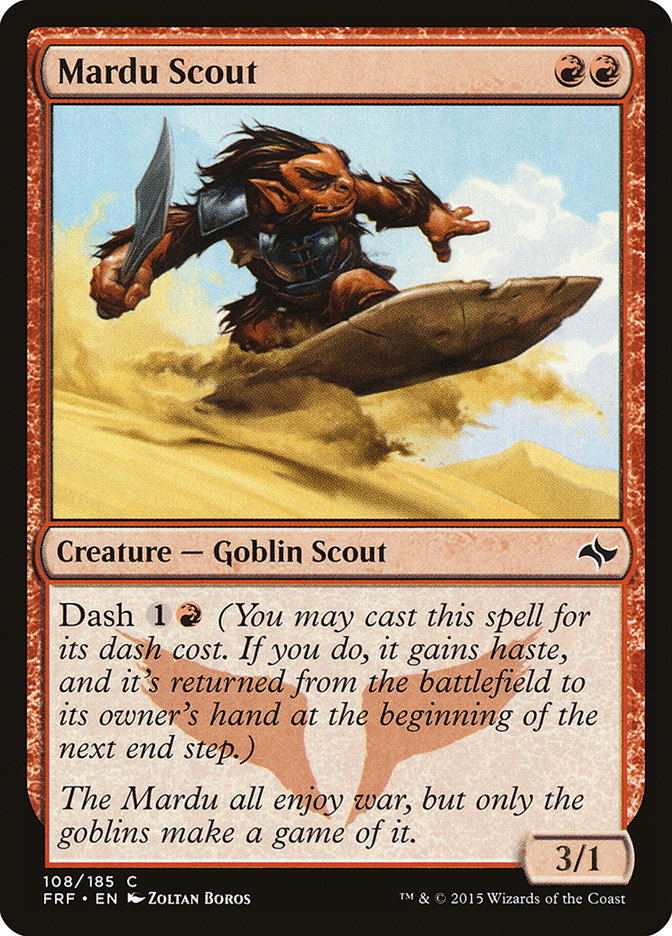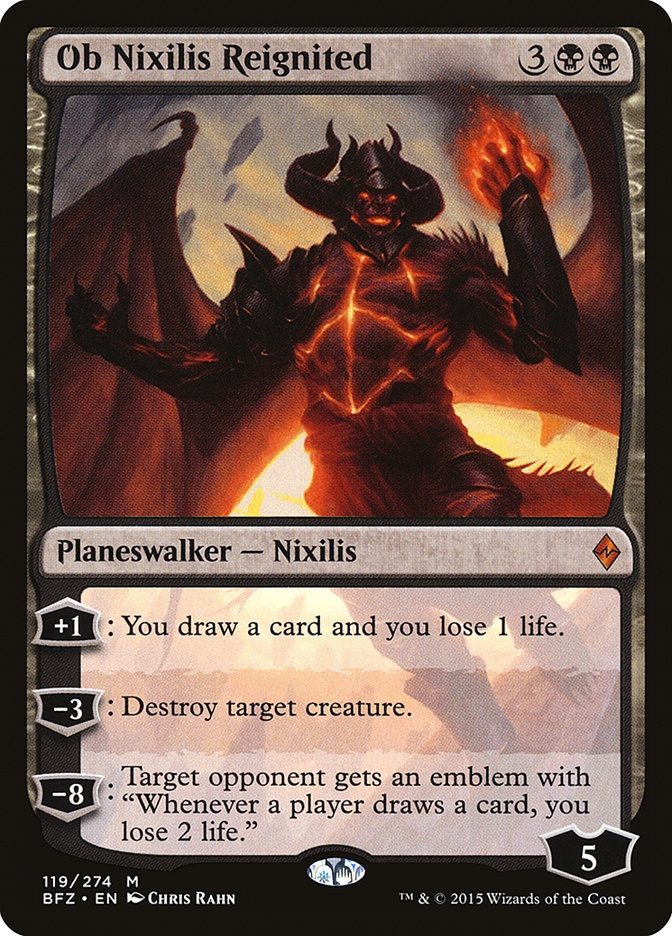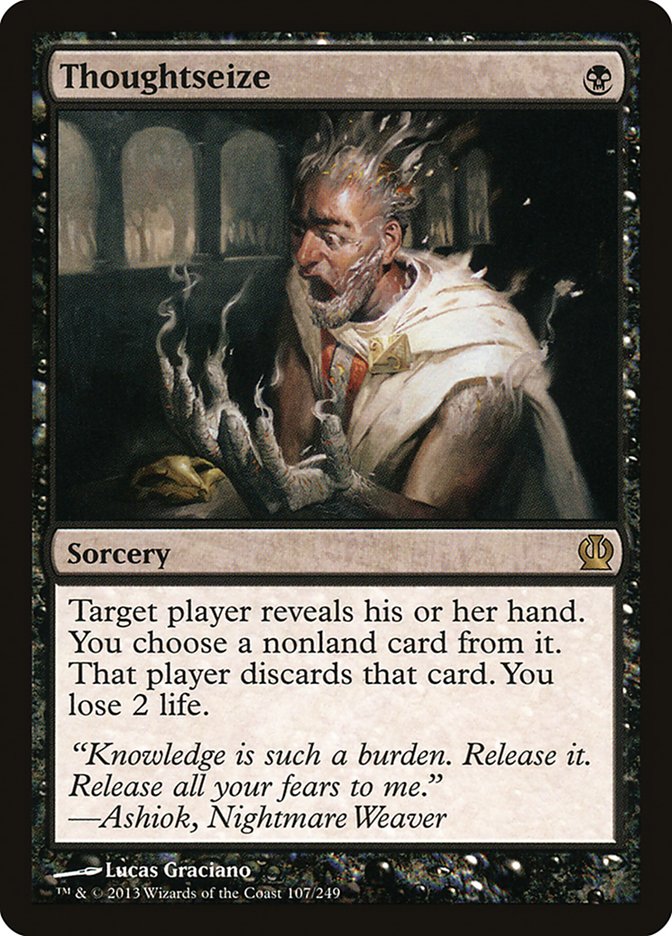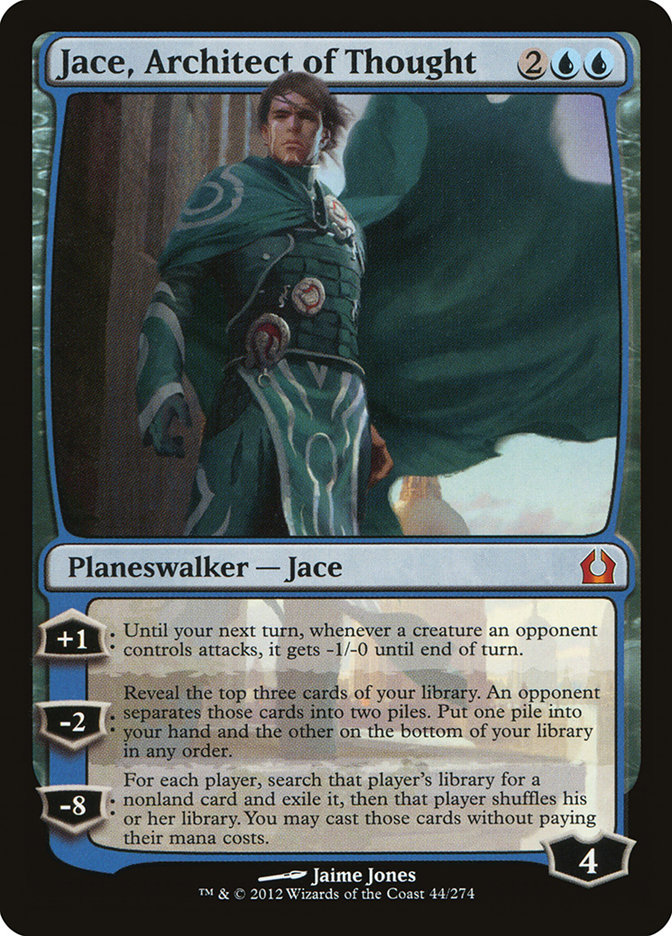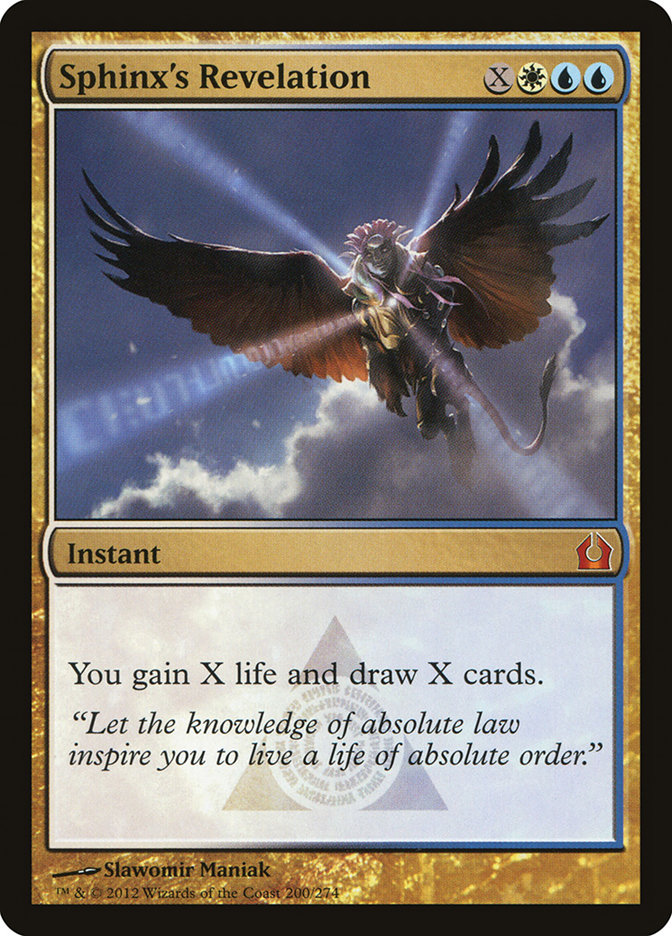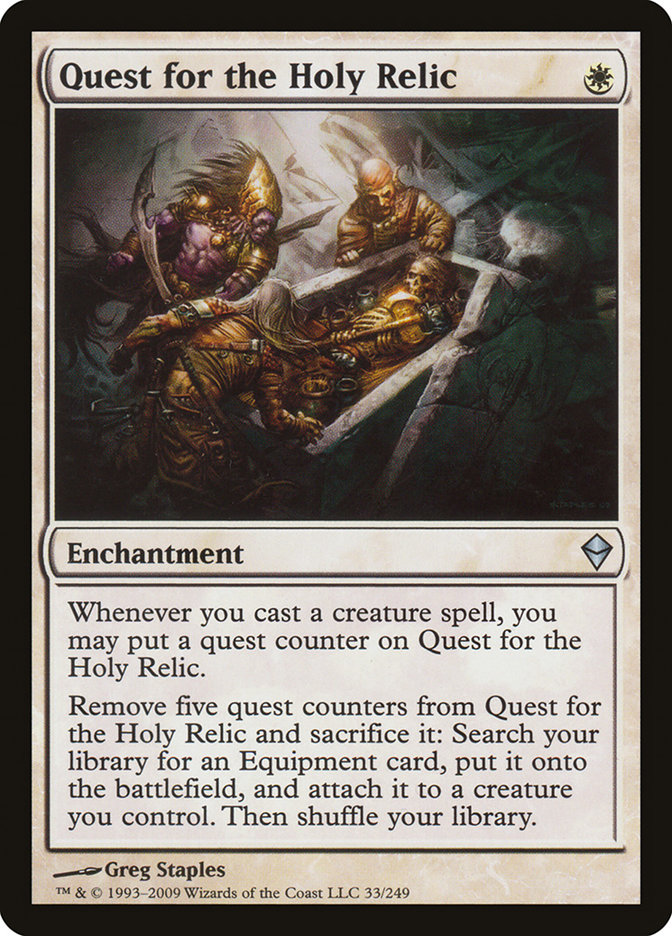Magic is a hard game. We all say that, but I’m not quite sure everyone really gets it. The phrase “Magic’s hard” is basically a cliché at this point, something you say by rote when it seems appropriate without fully comprehending the significance of what you’re saying. When was the last time you took a second to appreciate how absurdly difficult this game we love truly is?
Think for a moment about a Magic player you look up to and respect. Think of a moment of their career where it just seemed like they were unstoppable, when you were hearing their name in connection with a fresh Top 8 appearance so often it stopped seeming noteworthy. “Oh, of course Brad Nelson made Top 8 again; dude’s a monster. I sure wish I could run as hot as he does.” We become so accustomed to the achievements of the greats that we become numb to them.
There’s a certain comfort in letting ourselves believe that our losses are due to a less-than-cordial relationship with Lady Luck and not because of any personal failings. Losing hurts, and losing when it’s our own fault hurts even more. So we start trivializing the accomplishments of others to assist our self-deception. If we’re just unlucky, they must just be lucky.
But of course those at the top of this game are not merely running hotter than the rest of us. They have reached a level of mastery that the rest of us have not, and they utilize that mastery time and time again as they ride the waves of variance to heights that most of us can only dream of.
I’ve lost a lot these last few weeks, and it hurts. It’s not the first time I’ve been on a losing streak, and I’m as sure that it won’t be my last as I am that I will bounce back from it soon enough. It would be easy to dwell on the bad beats that led me here, to shrug my shoulders, carry on as I have been, and simply hope that my luck would soon turn around. Doing so would make me feel better for a time, but it wouldn’t help me get better at Magic, or in any other way that matters.
Instead, I like to dwell on the best Magic I’ve ever seen. The great plays that inspire me, that remind me of how far I’ve come and show me how far I have yet to go. The plays that convince me that in Magic as in life, one thing’s for sure:
You make your own luck.
Harsh Scrutiny Sequencing
Grand Prix Pittsburgh a few weeks back was not a great tournament for me. I played B/G Energy, and I felt really good about my deck going in to the tournament. But I lost a couple of quick Winding Constrictor mirrors and soon found myself on the outside looking in. Losing mirrors can hurt more than any other loss in Magic, as you can’t tell yourself that it was just a bad matchup. You either do yourself and the game a disservice and blame it all on luck or admit the simple truth: you got outplayed.
So let’s take a look at the first loss I took at Pittsburgh, Round 4 against Andrew Sullano. Game 1 was not a particularly interesting affair; I recall taking a mulligan to five that I couldn’t overcome. But Game 2 was fantastic. I felt very good about my opening hand:
Both Gonti, Lord of Luxury and Ob Nixilis Reignited have the ability to dominate the mirror in the late-game. My hand was weak to an aggressive “Winding Constrictor into Rishkar, Peema Renegade” draw, but otherwise I felt pretty good about my chances. Andrew did not have a fast start, but he managed to tear my draw apart all the same. On his first turn he cast a Harsh Scrutiny on me, took my Gonti, and got a good close look at what the future held.
Based on our conversation after the match and my poor, flawed memory, Andrew’s hand after casting the Harsh Scrutiny must have looked something like this:
My hand was objectively better than Andrew’s hand. My spells were both more powerful and better-suited for their opposition. They did, however, have one key weakness: both of the powerful removal spells I held in my hand were sorcery-speed effects. Not a huge weakness, but enough of an opening for Andrew to seize control of the game and victory in our match.
How? In the end, all it took was a bit of simple sequencing. Without a Hissing Quagmire, Andrew had to avoid at all costs a scenario where my Ob Nixilis Reignited came down on turn 5 and destroyed his only creature. That would be the absolute worst case scenario. But with a fairly creature-light draw, maneuvering away from that situation was more easily said than done.
The solution? Do nothing. Andrew held his creatures in his hand on turns 3 and 4, denying me the opportunity to cast my Ruinous Path and effectively wasting my first four turns of mana. Then Andrew cast both of his two drops. I untapped and stared down at a hand of miserable options. I could Ruinous Path one of his creatures, waste two mana this turn, and hope he was somehow out of gas and my Ob Nixilis Reignited would be good next turn. Or I could deploy my Ob Nixilis Reignited, eat a creature, and try to build the game to a point where awakening my Ruinous Path would give me the value I needed.
In hindsight, Andrew’s play seems obvious. That’s the mark of a truly great play, something simple that is so clearly correct that it’s easy to forget just how deep into the game you had to go to find that play in the first place. So many players play Magic by just casting the spells in front of them: Welp, I have two mana this turn and a two-drop creature in my hand, so I might as well cast it. “Might as well” Magic has my vote for the number one affliction that affects Magic players. It’s lazy thinking that should be avoided at all costs.
Playing “might as well” Magic would have lost Andrew that game, and maybe our entire match. Instead, he walked away with the match slip and I spent 30 minutes berating myself for playing stupid sorcery-speed sideboard cards that allowed my opponent to play circles around me. C’est la vie.
Next time you catch yourself about to make a play because “might as well” or “don’t see why not,” stop yourself and think some more. Eradicate these flimsy reasons from your mental repertoire and your game will thank you later.
Trading on Reputation (Or Lack Thereof)
But focusing too much on the times you got outplayed is a good way to get way too down on yourself. Recognizing how much of the mountain you have left to climb is important, but it’s also important to take a breath every now and then, to look down and appreciate how just how high up you are.Magic is so popular in part because it does a fantastic job of making us feel smart, so I imagine we all have good memories of times we came up with particularly brilliant plays.
When I need a good mental pick-me-up or just really want to impress some people at parties, my go-to story is a game I played against one Brad Nelson at Grand Prix Cincinnati 2014. Return to Ravnica / Theros Standard was the name of the game as Brad and I battled for the first of what would be many times in a Round 15 win-and-in into the Top 8.
I had elected to bring the noble forces of Mono Black Devotion into battle, while Brad had joined the dark side and was wielding the Esper Control deck headlined by Sphinx’s Revelation. He beat me in convincing fashion Game 1, but Game 2 was looking all right. We were pretty late in the game, and the pressure I was presenting was minimal, but he was more or less tapped out of resources. I was going to end the game in another two turns, and it looked like I was going to get a third game with which to make my Pro Tour dreams a reality.
And then it happened: Brad drew for the turn and cast Jace, Architect of Thought. Jace was one of the best cards in the matchup, and Brad finding one right before I was able to close the game out was mildly tilting. But I knew it likely wouldn’t matter; so few cards in his deck did anything at this point. As long as the minus didn’t flip a Sphinx’s Revelation…oh, well, there goes that dream.
After Jace’s minus drew Brad a Sphinx’s Revelation, there was only one good thing going on in my life: casting the Jace had not left him with enough mana to effectively cast the Revelation. I had one turn to figure out an answer, and no more. With the game as it was, if Brad got to cast that Revelation for X=5, I knew I had X=0 chance of winning the game.
My turn started with an attack to clear out the Jace, an attempt at getting Brad to use his four remaining mana to save his Jace. He didn’t bite, and I knew I had to try something else to tap him out in my second main phase. So I cast an Underworld Connections, and Brad elected to Dissolve it.
I’ve never slammed a Thoughtseize onto the table faster in my entire life. I stole his Sphinx’s Revelation, and with it I stole the game.
Let’s break this one down a bit. The outcome of the game hinged on the Sphinx’s Revelation in Brad’s hand. Nothing else mattered. I had the Thoughtseize to clear it out before Brad could cast it, but I had to find a way to get Brad to drop his shields and opt into some other trivial fight with his mana. I started by attacking Jace, likely the second-most-important card out of Esper in the matchup, but Brad felt no need to defend it while the best card was sitting in his hand.
Casting the Underworld Connections to try to get the Dissolve out of his hand was not my only option. There were threats in my hand that could have been tried. Maybe Brad would worry about his Revelation being good enough to beat a Desecration Demon and elect to counter that threat. All other things equal, I would much rather have the Underworld Connections left over than the Demon; Connections is my best card in the matchup.
And that’s exactly why I had to bait with the Connections. I recognized that this wasn’t a case of me trying to optimize my hand; my back was up against the wall and this was a desperate bluff. I needed to induce a mistake out of Brad. Countering anything except a Thoughtseize in that spot would be a mistake, but a mistake I needed to make happen. So I traded on Underworld Connections’s reputation as the best card in the matchup and hoped that Brad would fall into a trap of play patterns, making the quick assumption that he would never get anything better than my best card for his counterspell. Magic is a game of nuances, and understanding that in this spot Thoughtseize was my best card won me that game.
But it wasn’t just the reputation of Underworld Connections I traded on to win that game. A large reason my play ended up working was my own reputation…or, rather, the lack of such. I was a complete unknown at the time, and I used that to my advantage. I needed Brad not to think too hard about my motivations, to take the plays at face value and not worry about whether I was baiting him into countering my second-most-important spell.
This, to me, is the heart of what is so great about Magic. Not only is finding the best way to play the cards in front of you an incredibly difficult puzzle that is extraordinarily different every single game, but the cards across the table from you often influence the shape of the puzzle far less than the person holding them. I could play the exact same match with the same cards against two different people, and the matches would feel completely different. Despite its intense complexity, Magic at its core is a mental battle between two warriors. To excel, playing the game is not nearly enough; you must also play the player.
The Takeaway
This week’s article is a little different than the last few I’ve written. If you feel it was lacking in strategic content, I apologize but respectfully disagree. True growth at Magic is impossible if you don’t actually believe success at this game is due to anything more than the favorable turn of a card. Finding a way to internalize the unbelievable depth and difficulty of Magic will do far more for your game long-term than any specific, actionable advice I or any other author could communicate in a single article.
Maybe my stories help you to appreciate the depth of Magic. Maybe they don’t. Regardless, keep an eye out in your own matches for moments of greatness. Examples from your own games will mean more to you, have more of that personal touch. The goal is to keep your eyes always on the prize of mastery, whatever that means for you and your own relationship with Magic.
Sound off in the comments with your favorite great Magic plays. I’m always on the lookout for awesome stories to inspire me on my quest for greatness.
The Grail Quest never ends.


